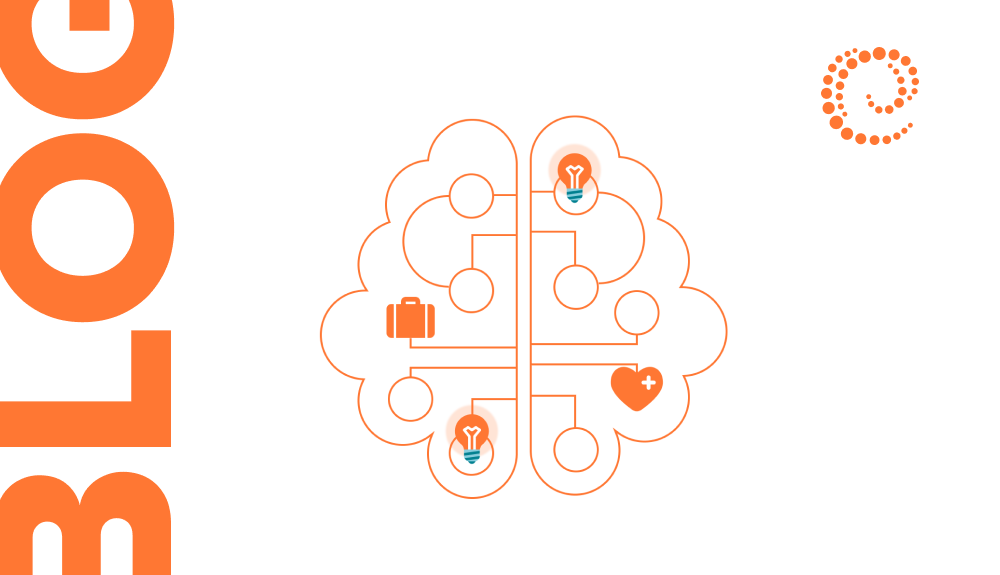
Accurate segmentation of bone structures is crucial for diagnosing fractures, planning surgeries, and monitoring the progression of diseases like osteoporosis.
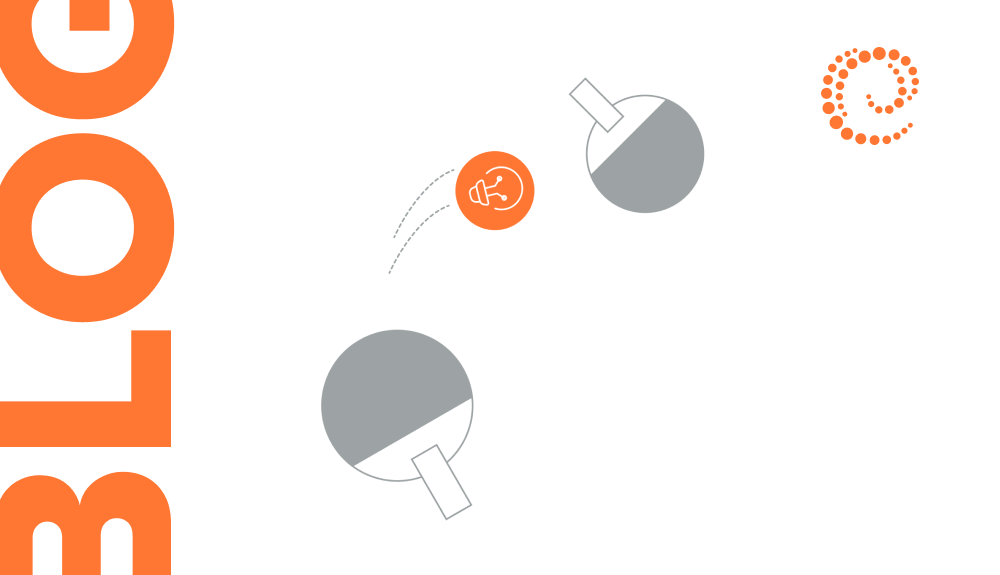
Alla Dortman | February 4th, 2025
In the world of product development, where ideas are born at the intersection of creativity and technology, the value of effective team interaction cannot be overstated. Many of us have experienced how difficult it can be to bring a good idea to life if it doesn’t find support.
A key trait that makes great team members stand out is their ability to play a unique game of idea exchange, like intellectual ping-pong. And in such cases, it becomes extremely important.
Idea ping-pong is more than just brainstorming. It’s an interactive process where team members build upon each other’s ideas, much like players in a table tennis match. Each “serve” is a new concept, and each “return” is an enhancement or a new perspective on that idea.
This back-and-forth of ideas helps create unique solutions.
Consider the development of the iPhone. Steve Jobs didn’t create it alone. It was the result of countless idea exchanges between engineers, designers, and marketers. Each feature, from the touchscreen interface to the App Store, evolved through numerous iterations of idea ping-pong.
Here’s the process in action:
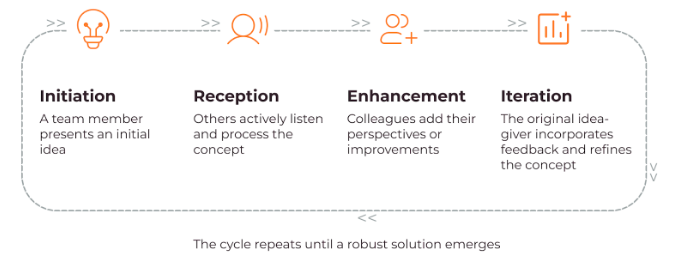
This approach significantly boosts creativity. By bringing together diverse perspectives, teams can tackle problems more effectively, leading to comprehensive solutions.
Regular intellectual exchanges not only enhance problem-solving. They also strengthen team cohesion, as members learn to trust and rely on each other’s insights. This teamwork speeds up innovation, as ideas are quickly improved and refined, helping the team work together creatively and efficiently.
Unfortunately, there are situations where an idea seems to get stuck in the air. Every proposal is met with excuses:
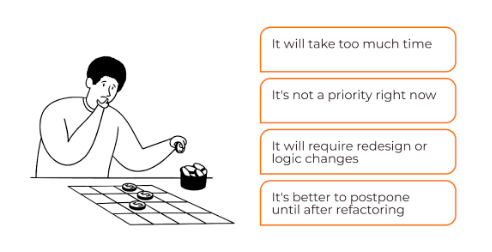
Such reactions can kill initiative and stop the flow of creative thinking. They often come from people who focus on limitations instead of possibilities. It’s like trying to play a game with someone who only deflects the ball to the side but never returns it to play.
However, there are ways to push through this. By fostering an environment that encourages open-mindedness and constructive feedback, teams can overcome these barriers.
It often stems from a tendency to dismiss new concepts too quickly, which can stifle creativity and innovation.
Solution: Implement a “Yes, and…” rule where team members must build on ideas before critiquing.
This approach encourages team members to first acknowledge and expand on an idea before offering criticism. The initial concept is given a chance to evolve and improve, fostering a more open and supportive environment for idea generation.
More prominent speakers can overshadow quieter team members, leading to an imbalance in contributions and potentially missing out on valuable insights.
Solution: Use round-robin techniques to ensure everyone gets a chance to contribute.
This method ensures that each team member has an equal opportunity to share their thoughts and ideas. It promotes inclusivity and encouraging diverse perspectives that can enhance the overall creative process.
Some team members can refrain from sharing their ideas, especially if they worry about negative feedback or ridicule.
Solution: Create a “safe space” policy where all ideas are welcomed and respected.
By establishing an environment where all ideas are welcomed and respected, team members feel more comfortable expressing themselves. This openness boosts confidence and encourages a free flow of ideas, leading to more innovative and effective solutions.
The ability not just to listen but to actively develop a partner’s suggestions is a skill that can and should be developed. Here are some recommendations on how to play intellectual ping-pong:
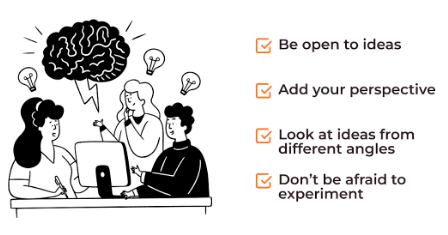
Be open to ideas. Even if a thought seems unrealistic, ask yourself, “How can this be improved?” This mindset encourages exploration and refinement, allowing ideas to evolve beyond their initial form.
Add your perspective. Offer concrete suggestions, not just criticism. By contributing your unique insights, you enhance the idea’s potential and demonstrate a commitment to collaborative growth.
Look at ideas from different angles. Use the mirror metaphor to reflect your partner’s thought and see new possibilities. This approach helps uncover hidden facets and innovative solutions that might not be immediately apparent.
Don’t be afraid to experiment. Prototyping and testing hypotheses help assess the potential of an idea. Experimentation is a vital part of the creative process, providing valuable feedback and guiding the idea towards practical implementation.
Effective team interaction is not just an exchange of opinions. It’s a joint creative process when each participant complements and enhances the ideas of others. Companies where the culture of intellectual ping-pong is deeply rooted become leaders in innovation.
Remember, every great product or service started as a simple idea. By playing idea ping-pong, you’re not just passing thoughts around – you’re building the future, one exchange at a time.
Action steps:
Play with ideas, pick them up, and improve them – and every new project will bring pleasure and success!
Contact us today to discuss your project and see how we can help bring your vision to life. To learn about our team and expertise, visit our ‘About Us‘ webpage.


Accurate segmentation of bone structures is crucial for diagnosing fractures, planning surgeries, and monitoring the progression of diseases like osteoporosis.
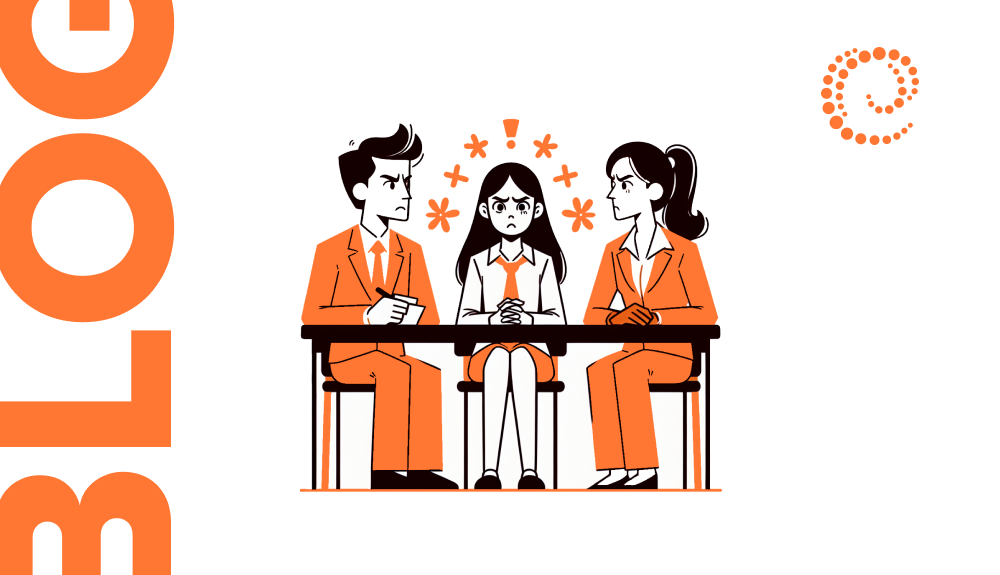
Let’s face it – every interview is a bit of a test, right?

With 12 years of experience in the HR field, I have conducted countless interviews.
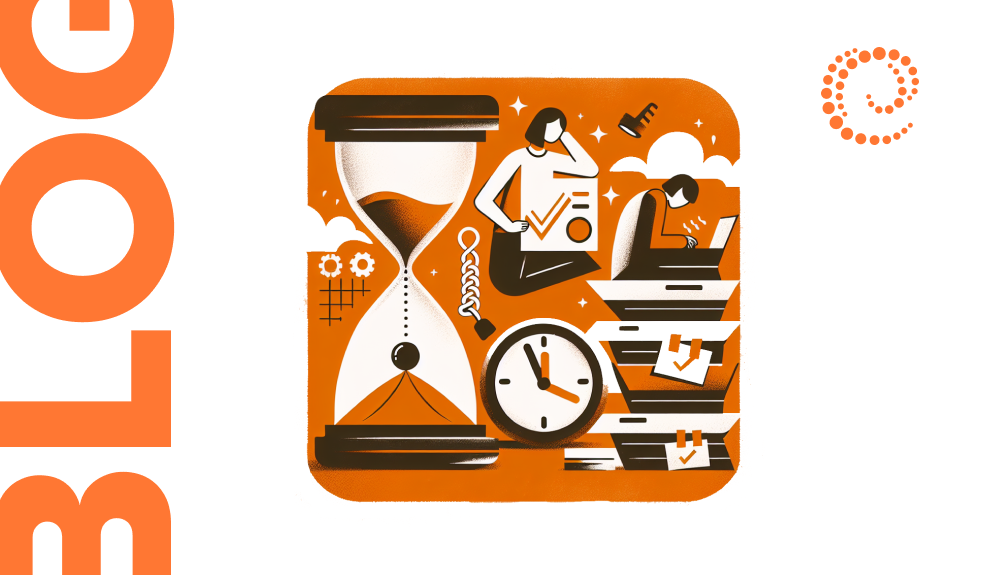
Productivity is usually about how many tasks you can complete in a certain time, like writing texts, doing code reviews,…

During my long HR career, I have conducted over 1000 interviews for a wide range of IT positions.
Setronica is a software engineering company that provides a wide range of services, from software products to core business applications. We offer consulting, development, testing, infrastructure support, and cloud management services to enterprises. We apply the knowledge, skills, and Agile methodology of project management to integrate software development and business objectives effectively and efficiently.
contact@setronica.com
+1 929 260 3113
Slovenia:
Kolodvorska 7, 1000 Ljubljana
USA:
211 E 7th St, Austin, TX 78701
© Copyright 2024 Setronica. All Rights Reserved.
